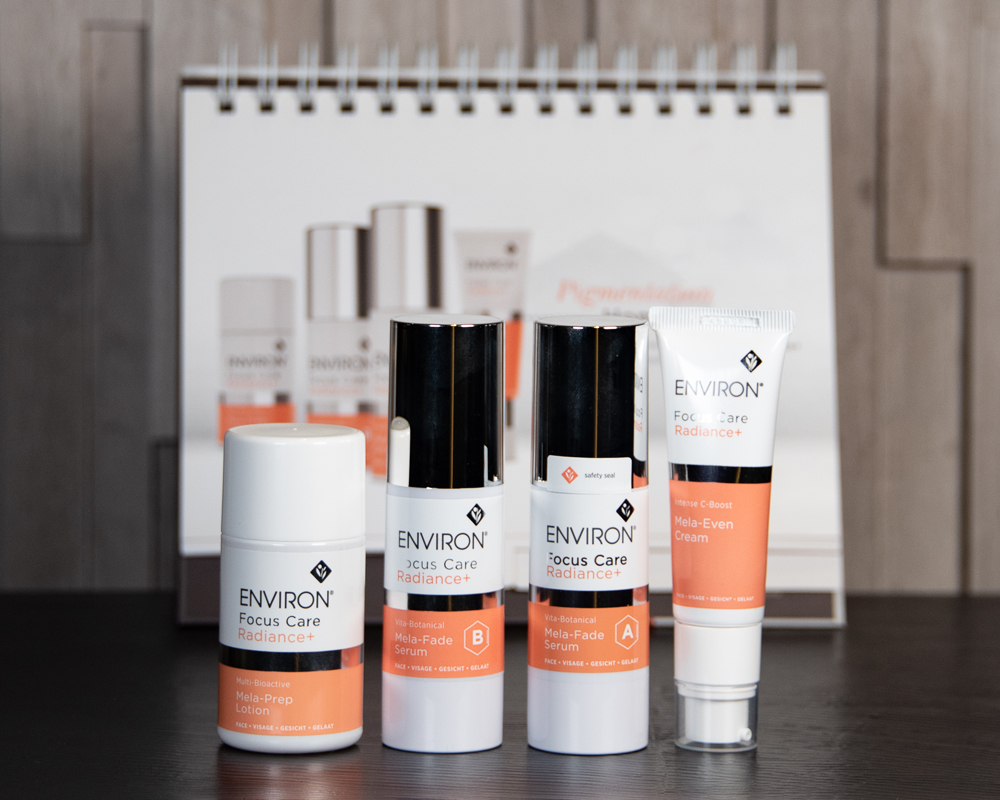Maintaining a consistent skincare routine is essential for healthy, radiant skin. Your skin is your body’s largest organ, and just like any other part of the body, it needs regular care and attention to perform at its best. Whether your goal is to manage acne, prevent aging, reduce redness, diminish brown spots, or simply protect your skin from daily environmental stressors, establishing a skincare regimen specifically for your skin type and concerns can make all the difference.
Why is a Skincare Routine Important?

Your skin is constantly exposed to external factors like pollution, UV rays, and temperature changes, all of which can contribute to premature aging, hyperpigmentation, and other skin issues. A daily skincare routine helps to:
- Protect: Sunscreen is your first line of defense against UV damage, which can lead to skin cancer and signs of aging, such as wrinkles and brown spots.
- Prevent: Regular use of antioxidants, exfoliants, and moisturizers helps prevent skin problems like acne, dryness, and irritation.
- Nourish: Providing your skin with the nutrients it needs ensures it remains resilient, hydrated, and capable of repairing itself.
Without consistent care, your skin is more likely to show signs of aging, develop inflammatory conditions, exacerbate symptoms of skin conditions, and become vulnerable to environmental damage.
Medical-Grade vs. Over-the-Counter Skincare Products: What’s the Difference?
When it comes to choosing skincare products, many people wonder whether medical-grade products are worth the investment compared to their over-the-counter counterparts. Here’s a closer look at the differences between the two:
Potency of Active Ingredients
Medical-Grade Products: One key distinction of medical-grade skincare is the higher concentration of active ingredients like retinoids, hyaluronic acid, vitamins A, C, and E, and antioxidants. These products are specifically formulated to penetrate the deeper layers of the skin, effectively treating issues like acne, hyperpigmentation, redness, brown spots, and signs of aging.
Over-the-Counter Products: While OTC products can be effective, they generally contain lower concentrations of active ingredients. These formulations are designed for the general public and are intended to be safe for a broader range of skin types, but they may not be as effective as medical-grade options in treating specific skin concerns.
Clinical Testing and FDA Approval
Medical-Grade Products: Medical-grade skincare is often backed by clinical studies and research to ensure safety and efficacy. These products are typically only available through dermatologists or medical spas and are subject to more rigorous FDA oversight. This ensures that they can deliver specific, targeted results for skin concerns.
Over-the-Counter Products: OTC products may not undergo the same level of clinical testing. They are regulated to ensure they are safe for general consumer use but may not be strictly tested for their effectiveness in treating specific skin conditions.
Customization and Professional Guidance
Medical-Grade Products: When you invest in medical-grade skincare, you’re not just purchasing a product—you’re receiving a personalized regimen tailored to your skin’s unique needs. At Western New York Dermatology, your provider will assess your skin type and concerns and refer you to the licensed aestheticians at our integrated medical spa, Healthy Complexions Spa. There, they will curate a customized skincare routine designed to maximize your results and treat specific skin concerns to help you achieve healthier, more radiant skin.
Over-the-Counter Products: OTC products use a one-size-fits-all approach. While they can be effective for general maintenance, they may not address specific skin concerns as thoroughly as a personalized treatment plan with medical-grade skincare products.
Targeted Treatment for Specific Conditions
Medical-Grade Products: These products are formulated to treat specific skin issues, such as acne, rosacea, melasma, or signs of aging. They contain ingredients that penetrate the deeper layers of the skin and bring about more noticeable, lasting results.
Over-the-Counter Products: OTC options are great for maintaining general skin health but less effective for treating more complex or chronic skin conditions. For example, while an OTC product may help moisturize or exfoliate, it won’t provide the same level of acne treatment as a medical-grade solution.
Why Choose Medical-Grade Skincare?
While both OTC and medical-grade products can contribute to a good skincare routine, medical-grade options offer a higher level of care for those seeking transformative results. If you have persistent skin concerns or are looking for a more powerful regimen, medical-grade skincare is worth the investment. It not only delivers more potent ingredients but also provides the peace of mind that comes from products backed by science and professional guidance.

An Integrated Approach to Skincare
At Western New York Dermatology, we believe in taking a comprehensive approach to skincare. Our team of experts can help you find the perfect medical-grade skincare regimen to support your skincare goals and keep your skin glowing and healthy.
If you’re ready to elevate your skincare routine, contact us today to schedule a free consultation at our integrated medical spa, Healthy Complexions Spa by Western New York Dermatology, and discover the right products for your skin’s unique needs. Whether you’re focused on prevention, maintenance, or treatment, we’re here to guide you every step of the way.
